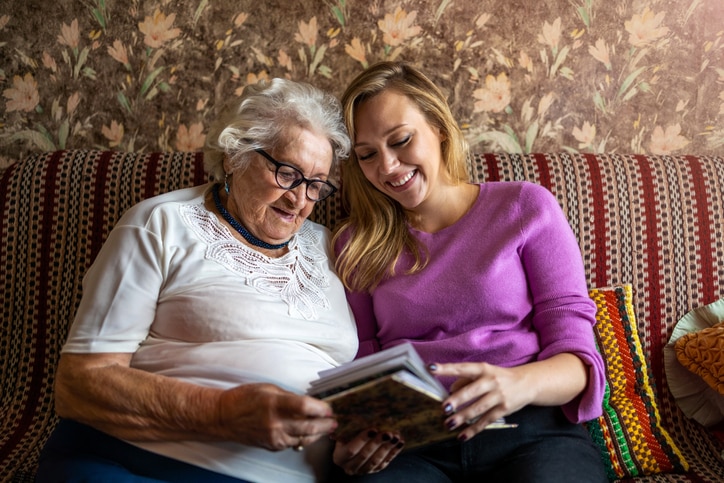Understanding Dementia Behavior and How to Handle it

When a loved one is diagnosed with dementia it affects the entire family. As you transition into the role of caregiver, you may find yourself struggling to understand the behaviors associated with this condition. Although your loved one’s behaviors may change rapidly, it’s important to remember that they’re still the same person and they don’t have control over how this disease affects them.
In this guide, we’ll discuss some common behaviors exhibited by people who have dementia, as well as tips and techniques for handling them. If you have any questions while reading, please contact our team at UMC for more information.
Aggressive behavior
Dementia affects a person’s ability to communicate, so they often can’t verbalize when they’re feeling uncomfortable, in pain, confused, and so on. It’s very common for people with dementia to be verbally or physically aggressive, and it can be confusing for caregivers who are trying their best to give them everything they need.
Your loved one might yell something like, “I don’t want to be here!” or “I don’t want to do this!” They may also exhibit physical aggression, like shoving you away when you try to come close or slamming doors shut when they are feeling overstimulated.
To help reduce aggressive behavior, be sure your loved one’s environment is free from certain triggers that can make them feel agitated or overstimulated, like loud noises and bright lights. Try to determine if they’re in any physical pain, because if so, they may need medical attention. Most importantly, don’t take their aggressive behavior personally.
Confusion about place or time
As dementia progresses people often become confused about where they are, and even if you’re taking care of them at home, it’s common for them to repeatedly ask to go home. If your loved one is confused about where they are it’s important that they feel like you’re listening to them, however repeating “We are at home” over and over again isn’t helpful for them. Instead, try showing them sentimental photos or objects that may help them realize that they are at home.
Poor Judgment
While this may sound vague, people with dementia commonly exhibit poor judgment in the form of hoarding, struggling with their finances, and confusion doing everyday activities like cooking or dressing. Many of us blame brief lapses in memory on old age and we’ve all had a momentary memory slip, so it’s important to be vigilant with your senior loved one if they start exhibiting any of these behaviors.
If you’ve noticed that your loved one has suddenly forgotten to pay their bills, if they’re hoarding items like magazines and newspapers, or they seem to forget how to seemingly normal things like how to put away their groceries, you can offer to help them establish a daily routine or make a list of daily activities. It’s important that they feel like they’re retaining a sense of independence.
At our Tapestries Memory Care neighborhood at The Shores, your loved one will have everything they need to manage their dementia and live a fulfilling life. If you’d like to learn more, or if you have any questions, please contact our team today or visit our website at: https://umcommunities.org/theshores/




